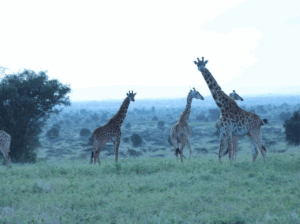

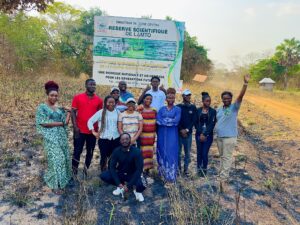
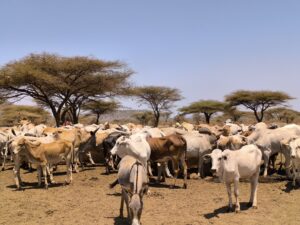
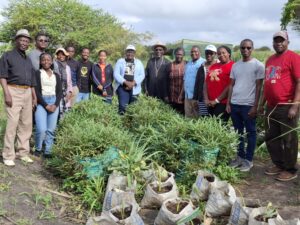
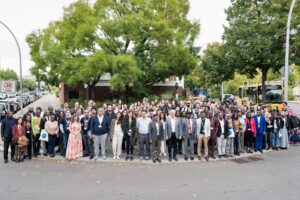
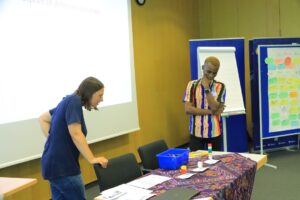
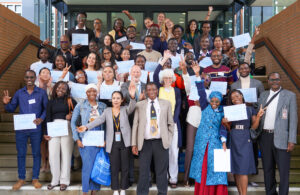
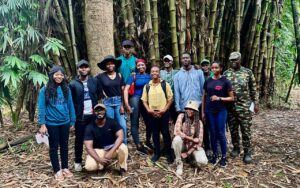
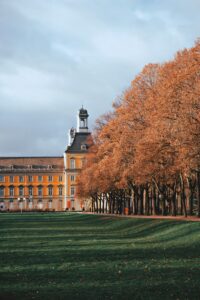
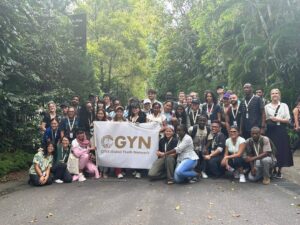
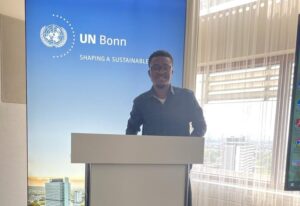
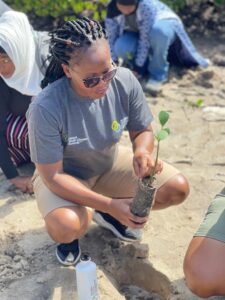
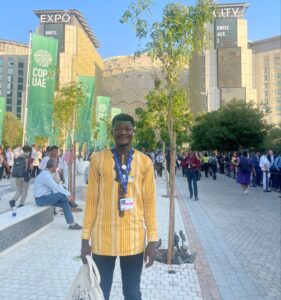
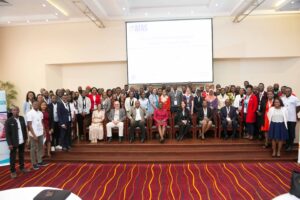
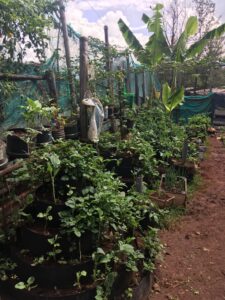
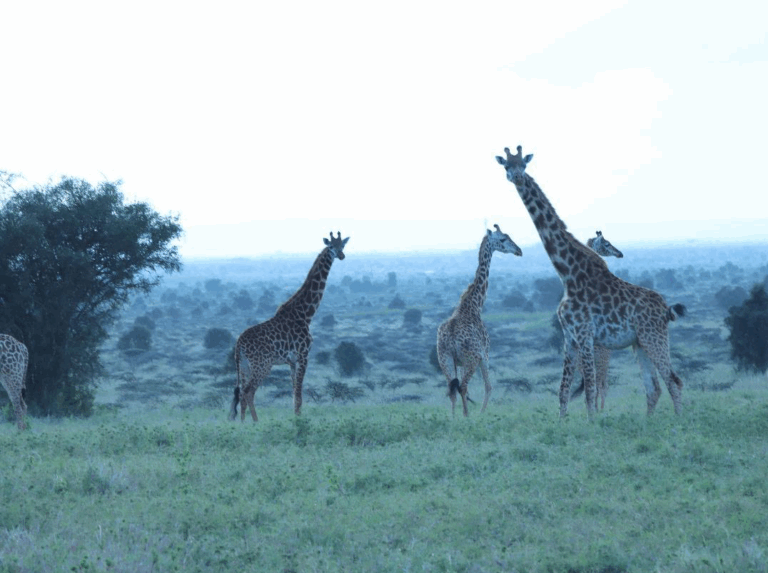
Protected areas, often described as sanctuaries for biodiversity, are central pillars for global biodiversity conservation. The International Union for Conservation of Nature (IUCN) defines them as clearly defined geographical spaces, recognized, dedicated, and managed through legal or other effective means, to achieve the long-term conservation of nature with associated ecosystem services and cultural values (Dudley, 2008, p8).
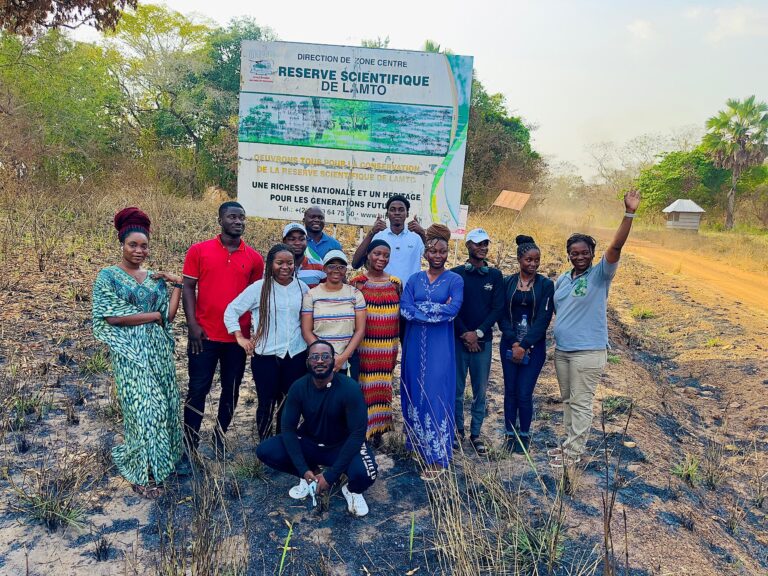
As part of our academic journey under the African Climate and Environment Center-Future African Savannas (AFAS) program, we embarked on a pivotal excursion to the Lamto Scientific Reserve in Côte d’Ivoire. But why Lamto? Known as a “living laboratory”, the Lamto Scientific Reserve has played a crucial role in ecological research, offering unique insights into climate dynamics and ecosystem interactions in a rapidly changing environment. This excursion was not just about observation; it was an opportunity to connect theoretical knowledge with real-world ecosystems, reinforcing our commitment to evidence-based climate action, conservation, and sustainable development across Africa’s savannas.
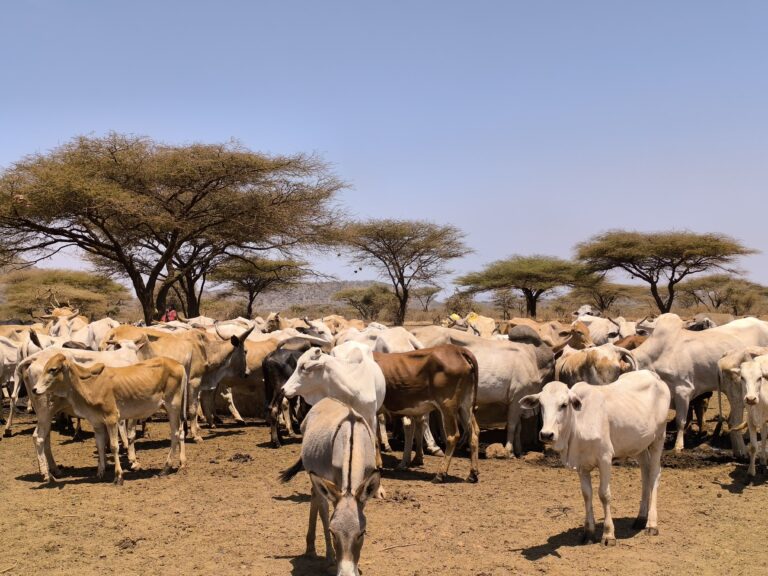
From 23rd of February to 1st of March 2025, I had an opportunity to attend the Drylands Summer School in Isiolo, Kenya that brought together master’s and PhD students with research interest in pastoralism in drylands. One of the objectives of the summer school was to debate on pastoral livelihoods through the lens of social, ecological and political perspectives. In the following sections, I explore key issues that arose during the summer school that are often overlooked and those which play a critical role in the dryland pastoral context.
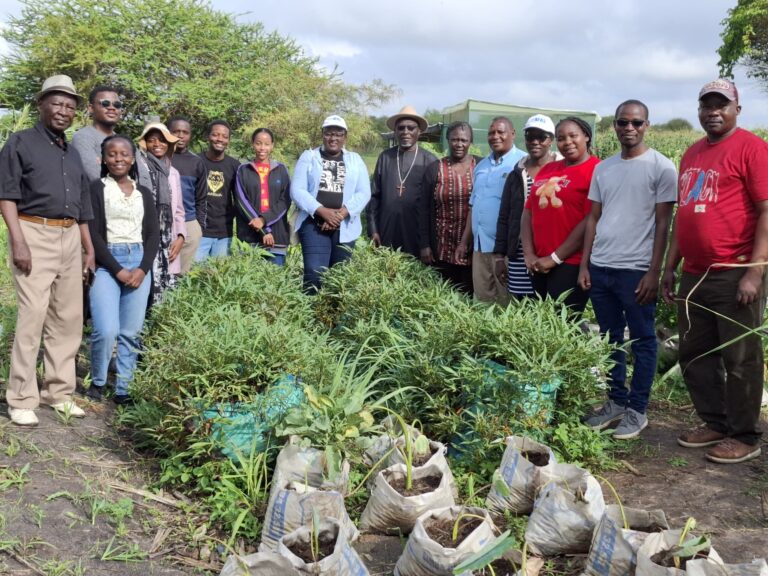
On 22nd November 2024, AFAS second cohort students from the University of Nairobi had an excursion to Yatta Farm, run under the umbrella of Christian Impact Mission (CIM) – a faith-based organisation – to learn about the practical aspects of nature-based solutions (NbS) and science-policy-practice interfaces (SPPIs) implemented within the agriculture sector in Kenya’s savannas…
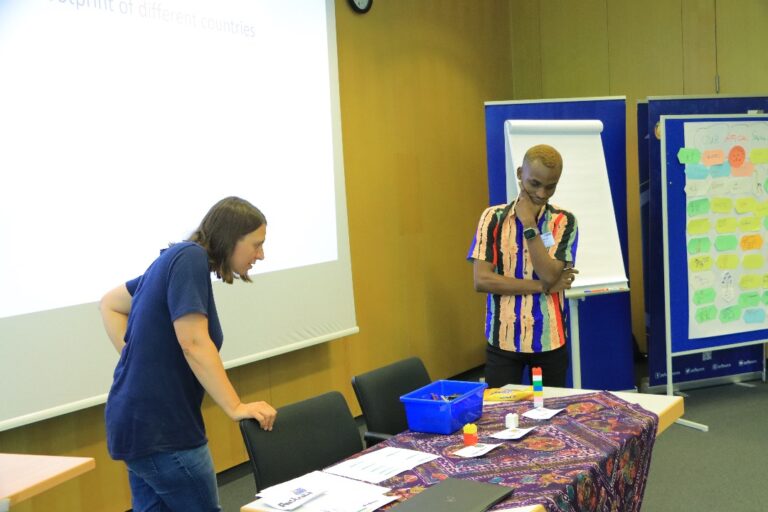
AFAS students from the 2nd cohort from Université Félix Houphouët-Boigny and the University of Nairobi give us insights into the powerful role of Science-Policy-Practice Interfaces (SPPIs) in Africa’s savannas.
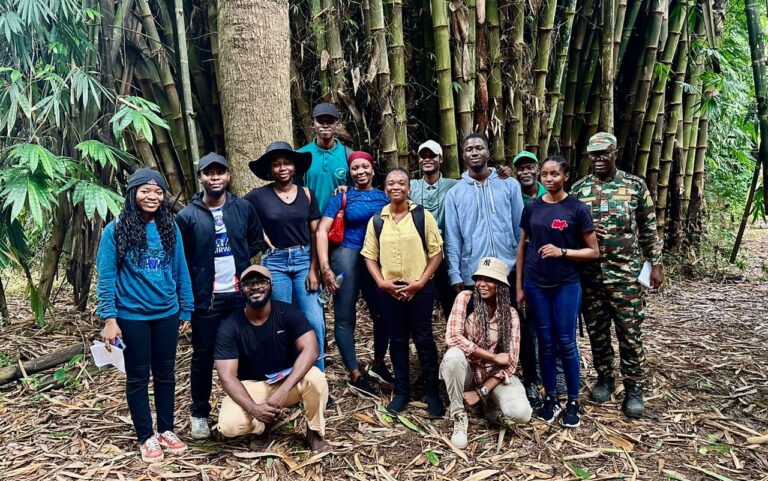
AFAS students from the 2nd cohort attend a fieldwork session at the Dahlia Fleur Reserve in Abidjan, as part of our course on Indigenous and Local Knowledge Systems. This excursion aligns with AFAS’s mission to explore how Nature-Based Solutions (NBS) are implemented in the co-management of the park.
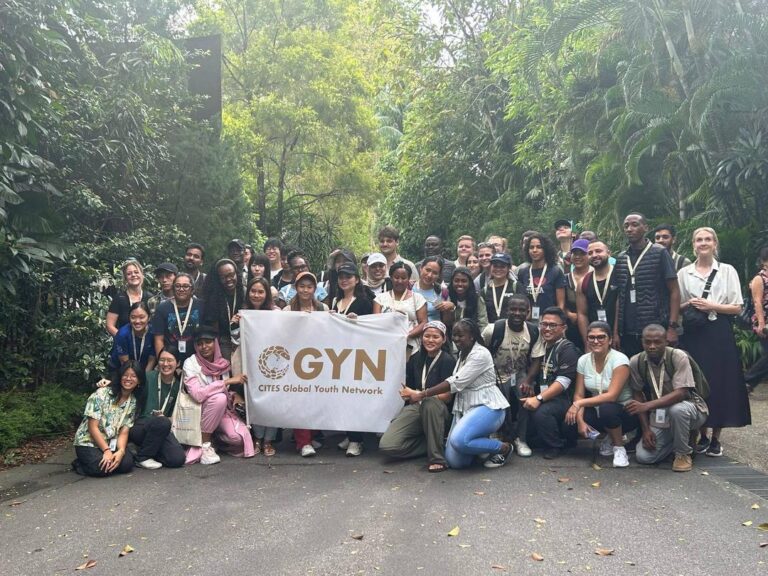
AFAS alumnus Nouhou Zoungrana took part in the CITES Youth Leadership Program (CYLP) and the launch of the CITES Global Youth Network (CGYN) in Singapore in April 2024. In this blog post, Nouhou reports on the highlights of the event and gives some recommendations for policymakers in Burkina Faso.
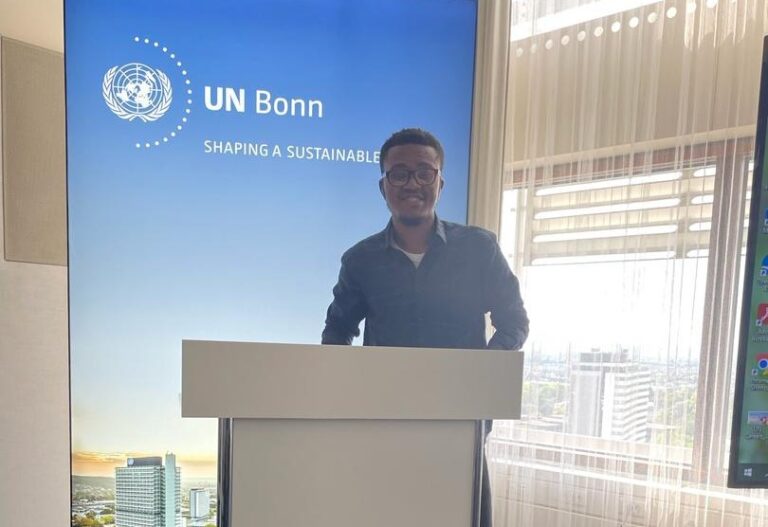
AFAS fellow Lawrence Akpoterai shares experiences from his research internship at the United Nations Framework Convention on Climate Change (UNFCCC).
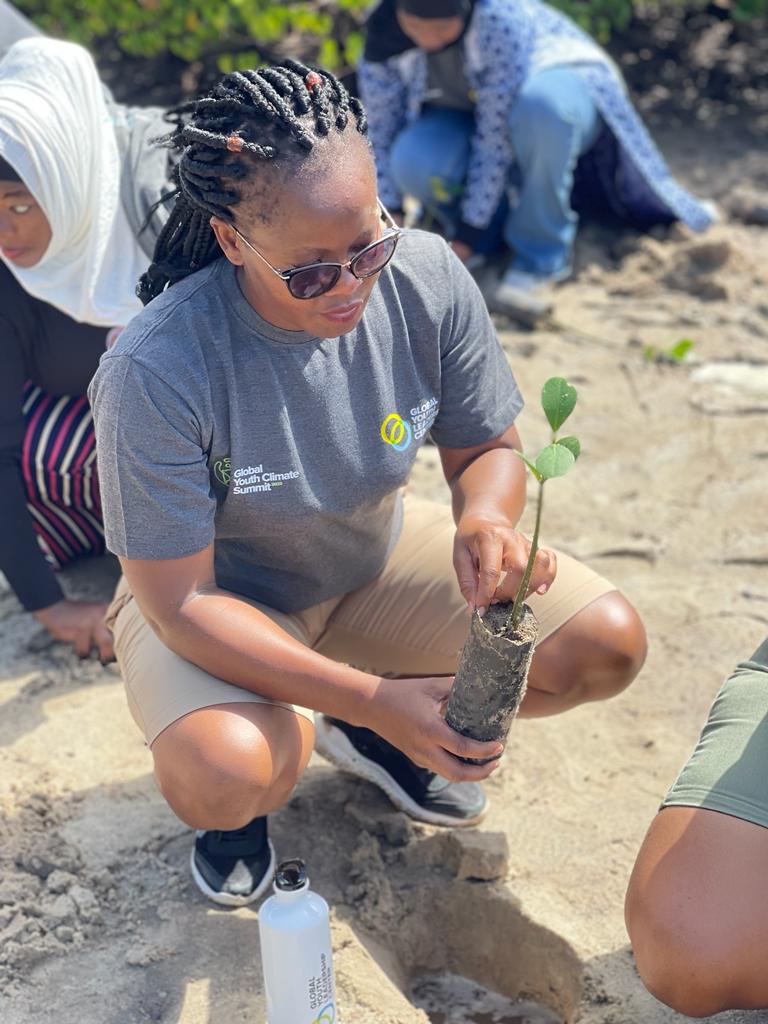
AFAS fellow Millicent Atieno Philip attented the Global Youth Climate Summit 2023 in Dar es Salaam and shares her experience.
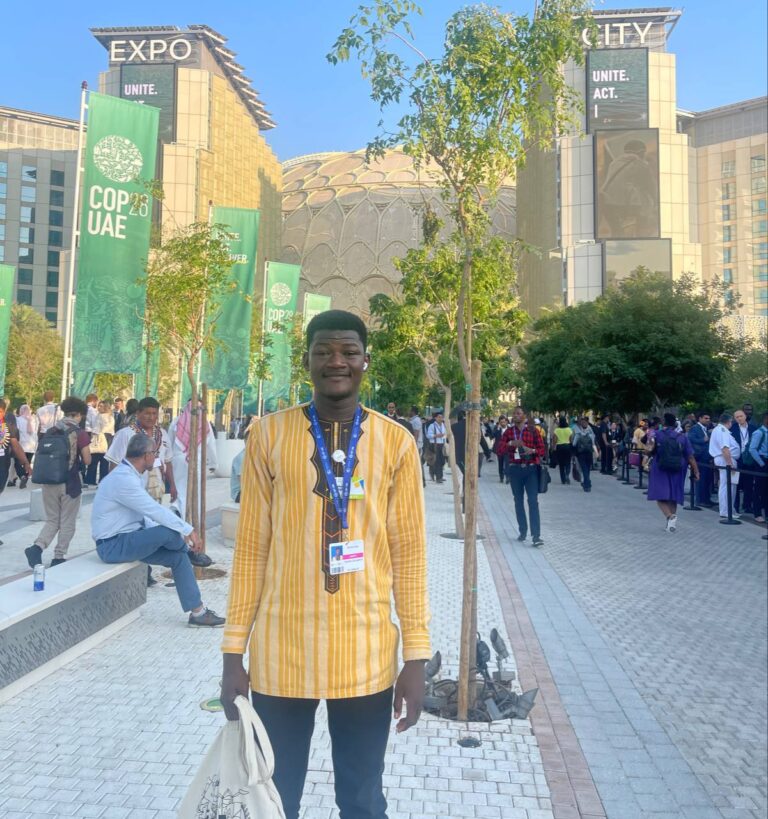
AFAS alumnus Nouhou Zoungrana attended the COP28 in Dubai and shares his experience.
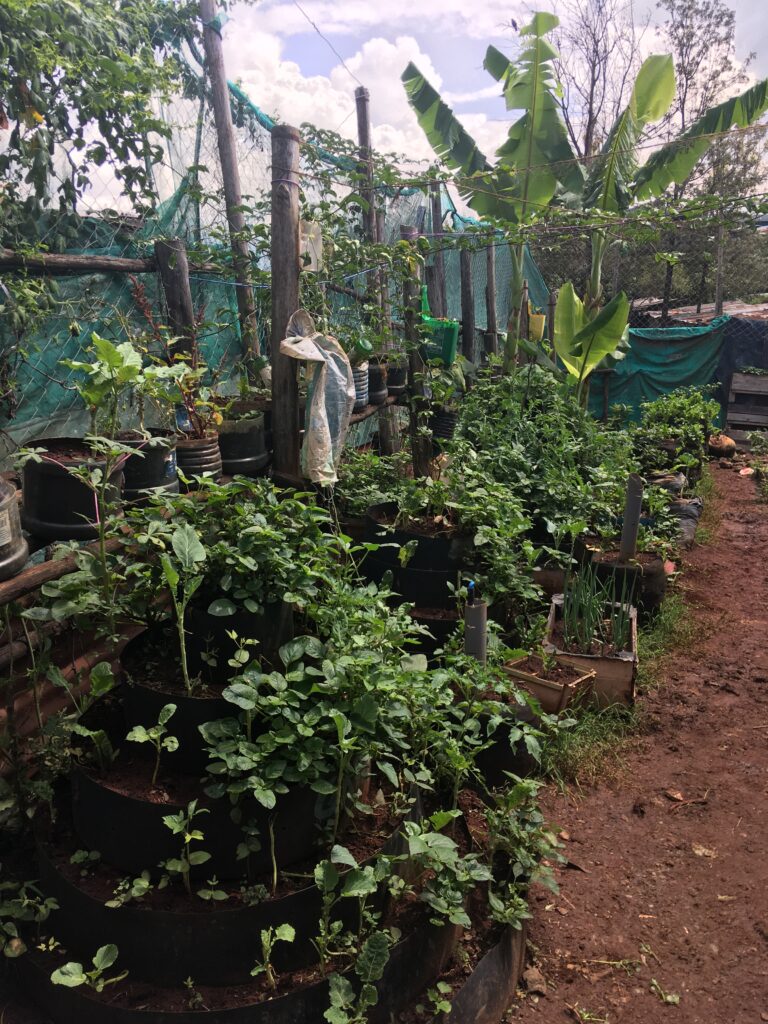
Urban agriculture (UA) encompasses various meanings globally, generally denoting agricultural or gardening activities within urban areas and their peripheries. Its expression varies contextually, shaped by historical, socio-economic, climatic, and cultural factors. Increasingly recognized as a potential multifunctional solution, UA might address diverse urban challenges such as food security, climate change adaptation, and biodiversity loss in cities. In her Master’s thesis, Anica Luggen-Hölscher decided to focus on UA in Nairobi and to explore it as a potential Nature-based Solution (NbS).
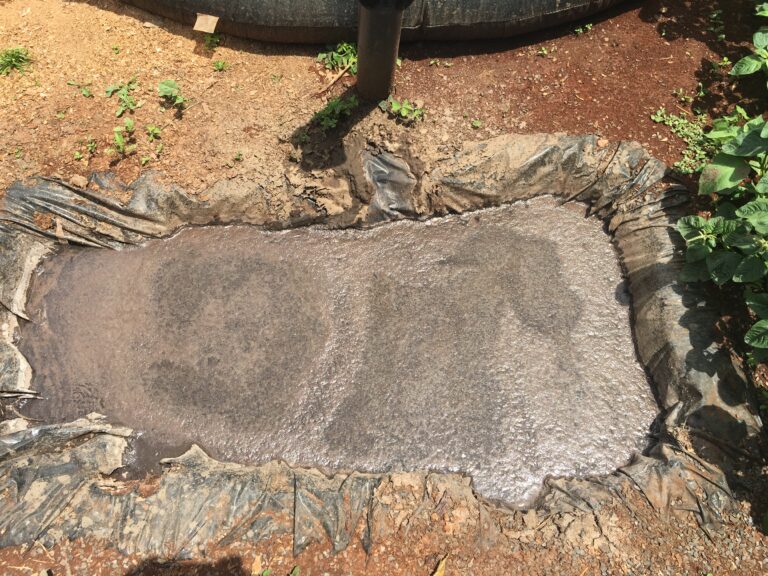
Kenya’s reliance on biomass energy for cooking remains significant and is even expected to increase due to population growth, urbanization, and limited access to cleaner energy sources (Namaswa et al., 2022; Okoko et al., 2017). Recent data from the Ministry of Energy in 2019 revealed that approximately 70% of households in Kenya rely on woodstoves, with a majority still using three-stone open fires. Other cooking technologies, such as charcoal stoves, LPG stoves, and kerosene stoves, make up the remaining percentages, with electrical appliances, biogas and liquid biofuels remaining marginal.
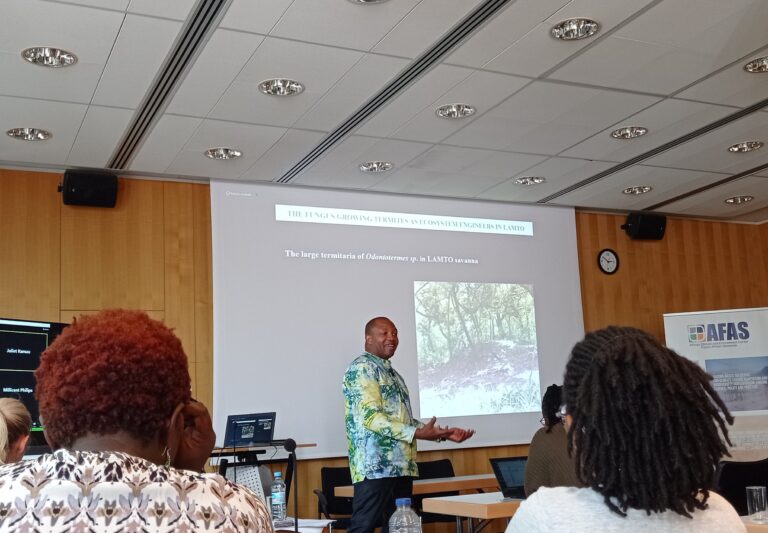
Termites are small “soft-bodied eusocial ‘white ants’ insects” which feed on a variety of organic material, ranging from leaf litter, wood or soil humus. Their feeding character has made various people to perceive them differently. For instance, across agricultural landscapes, termites (together with earthworms) have been regarded as crucial sources of proteins, vitamins, fats, carbohydrates and minerals to poultry due to their high nutritional value (Tiroesele and Moreki, 2012). In contrast, other people regard termites as pests, owing to their destructive nature to farm produce resulting to low crop yields and huge losses to farmers. As a mitigation measure, the farmers have adopted various physical and chemical measures to manage them. The attribute of termites wreaking havoc to farmers was well known to the AFAS students mainly because a majority of them hail from agricultural backgrounds in Africa as they have witnessed first-hand their negative impact.
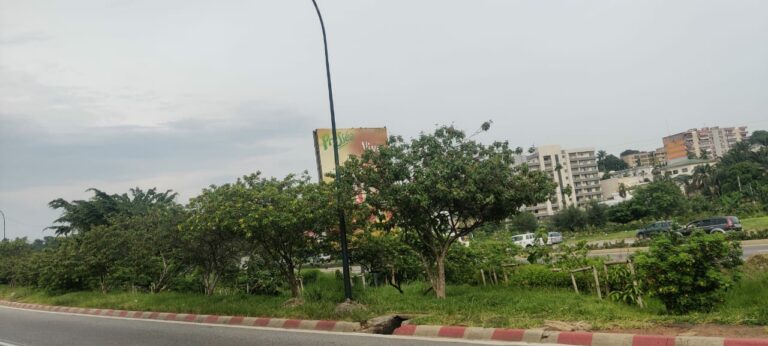
As the students under the AFAS program diffuse into their various countries and localities to conduct field research, they carry along such virtues about nature-based solutions. World-class professionals and leading thinkers in this field have continuously devoted their time and effort in shaping the minds of the students during this academic phase. With these skills and knowledge, the students are determined to offer leadership in this nature-based solution sphere as practitioners, policymakers and as scientists. Their contribution will play a pivotal role to the achievement of resilient societies and ecosystems, not only within the confinement of the African savannas but also on the entire globe
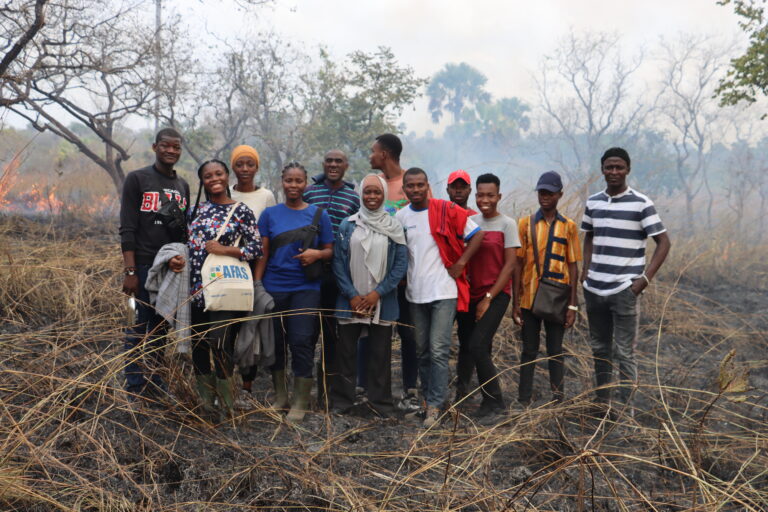
Savannas are important ecosystems characterized by the co-dominance of trees and grasses, including systems with a continuous herbaceous layer and a discontinuous woody stratum (Frost et al., 1986). These ecosystems cover approximately 20% of the Earth’s land area and takes up almost half of the African continent. The dynamics of these ecosystems are influenced by rainfall, fire, and herbivory, making them either “stable” or “unstable” (Sankaran et al., 2005), due to the magnitude of any of these factors.
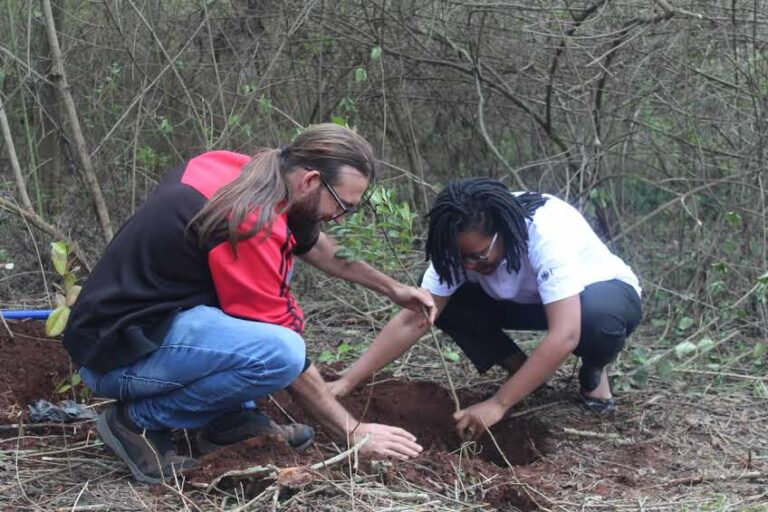
There is this famous quote which states that “The best time to plant a tree was twenty years ago. The second-best time to plant a tree was yesterday.” It is at this backdrop that the Future African Savannas (AFAS) project team, led by its Principal Investigators Prof. Daniel Olago (Institute for Climate Change and Adaptation- University of Nairobi (UoN), Kenya) and the projects’ coordinators Dr. Juliet Kamau (Centre for Development Research (ZEF)-University of Bonn, Germany), Dr. Gerda Kuiper (Global South Studies Centre – University of Cologne, Germany), Prof. Ngolo Kone (African Center of Excellence for Climate Change, Biodiversity and Sustainable Agriculture-Université Félix Houphouët-Boigny (UFHB), Abidjan, Côte d’Ivoire) and Ms. Lewnorah Ayietta (Institute for Climate Change and Adaptation (ICCA)-University of Nairobi, Kenya) had the team taking up a tree planting exercise at the Wangari Maathai Institute for Peace and Environmental Studies.
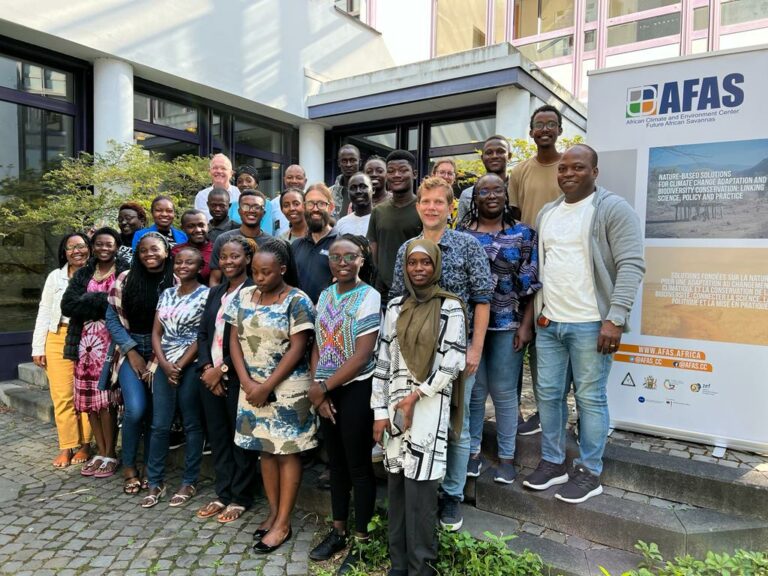
Drawing on beyond-classroom observations from the AFAS exchange visit to Germany Published November 25, 2022 by Joseph N. Ndiba, Lawrence Akpoterai, Pius Domokong and Adrian